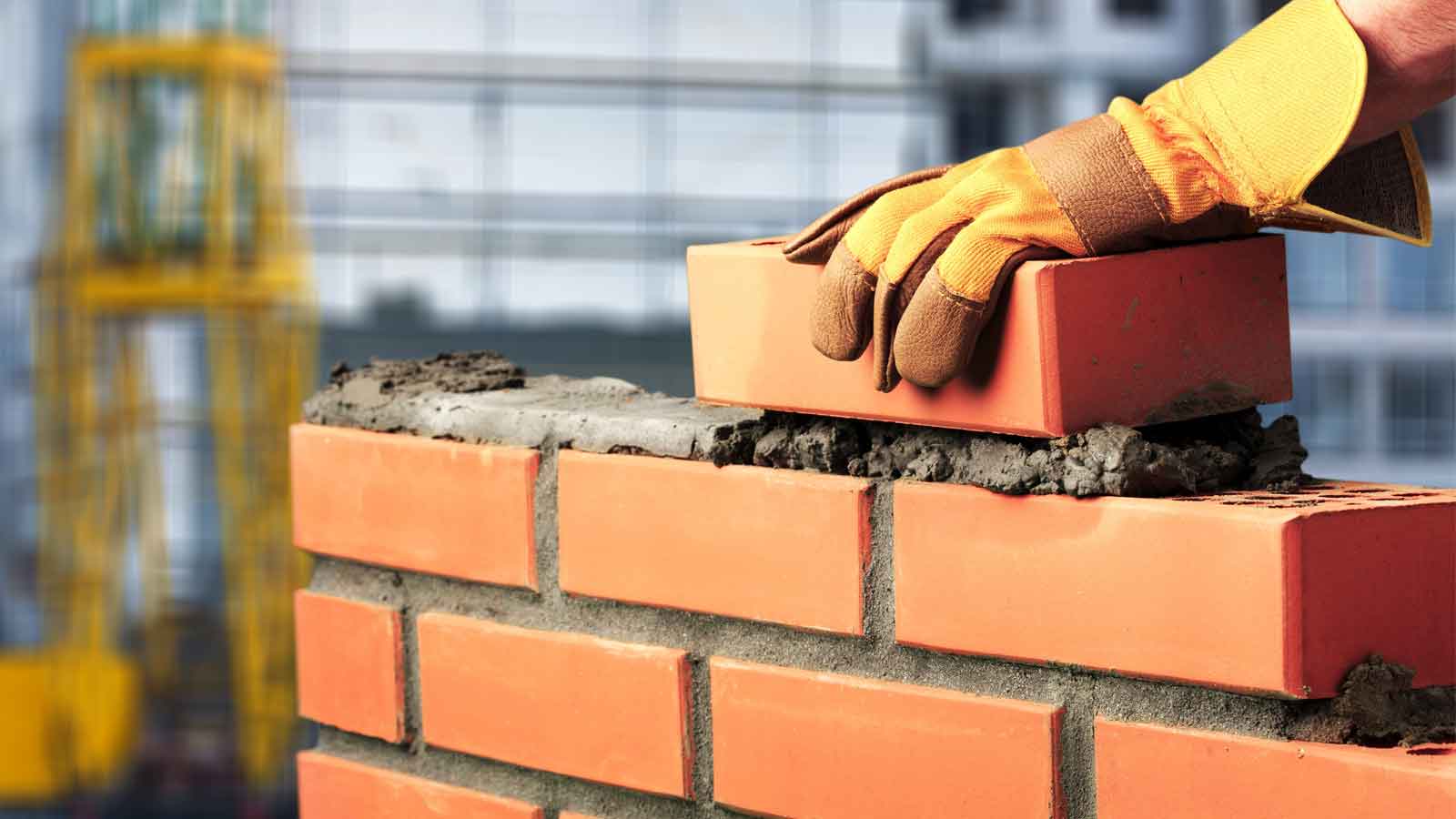Comprehensive Patio Installation Services by Trusted Professionals
Comprehensive Patio Installation Services by Trusted Professionals
Blog Article
Opening the Tricks of Sustainable Stonework Building Practices for Eco-Friendly Buildings
In the world of modern-day building and construction, the quest of sustainable practices has become paramount. Amongst the myriad methods to environment-friendly building, lasting stonework building and construction attracts attention as a reliable and sturdy method that holds a wide range of untapped capacity. From the choice of materials to ingenious building and construction methods, the secrets to attaining sustainability within masonry construction are diverse and fascinating. By exploring the advantages, products, methods, and future trends of lasting masonry, a deeper understanding of exactly how these practices can form the future of environmentally friendly buildings arises.
Advantages of Lasting Masonry Construction
Embracing sustainable stonework building and construction techniques not just reduces ecological effect but likewise offers lasting financial advantages to contractors and neighborhoods. By using materials like recycled bricks, blocks, and rocks, home builders can dramatically decrease the carbon footprint of their projects while advertising source effectiveness. In addition, sustainable stonework construction techniques, such as correct insulation and thermal mass properties, can enhance energy performance within structures, bring about minimized operational costs over time.
Moreover, the durability and durability of stonework structures add to lasting economic benefits. Structures built using sustainable stonework practices often require much less maintenance and repair, converting to set you back savings for builders and homeowner. The durability of stonework materials likewise ensures that frameworks stay secure and protected, reducing the demand for frequent restorations or replacements.
Eco-Friendly Stonework Materials
Using environmentally friendly masonry products is a pivotal step towards enhancing the sustainability of building techniques and minimizing ecological influence while taking full advantage of lasting financial advantages. Lasting masonry materials are sourced, created, and made use of in a manner that decreases overall ecological influence. Materials such as recycled bricks, reclaimed stone, and sustainable concrete blocks are becoming progressively prominent options for eco-conscious contractors. Recycled bricks, for instance, not only divert waste from garbage dumps but also require less power to generate contrasted to brand-new bricks. Redeemed rock supplies an unique aesthetic allure while reducing the need for brand-new quarrying. Sustainable concrete blocks integrate recycled aggregates and may include better insulation buildings, adding to power efficiency in buildings.
In addition, all-natural materials like adobe, rammed planet, and straw bales supply exceptional thermal mass homes, reducing the demand for home heating and cooling power. These materials are typically locally readily available, promoting local economies and decreasing transportation-related carbon exhausts. By picking environment-friendly masonry materials, building and construction jobs can significantly minimize their ecological impact and add to the production of healthier, much more lasting built settings.
Energy-Efficient Masonry Methods
Energy efficiency plays a crucial function in enhancing the sustainability of stonework construction methods. By implementing energy-efficient masonry methods, contractors can dramatically reduce the general energy decorative concrete around pools intake of a structure, resulting in lower functional prices and a smaller environmental impact. One key energy-efficient masonry method is making use of thermal mass, which involves incorporating dense products like concrete or brick into the building's structure to take in and store heat. This helps regulate indoor temperature levels, lowering the demand for mechanical heating and cooling systems.

Developments in Sustainable Masonry
Recent improvements in sustainable masonry methods have actually caused innovative techniques that are reshaping the building and construction industry. One such technology is the development of self-healing concrete, which utilizes germs embedded within the concrete to heal splits autonomously. This innovation not only lowers maintenance prices yet also boosts the sturdiness of stonework structures, adding to their sustainability.
An additional remarkable innovation is the usage of recycled accumulations in stonework construction - masonry contractor. By integrating materials such as crushed ceramic waste or recycled glass into concrete mixes, contractors can decrease the environmental effect of building and construction tasks while preserving structural integrity. This method not just diverts waste from landfills however additionally conserves natural deposits, making it a key development in lasting masonry building and construction
Furthermore, the combination of digital layout tools, such as Structure Details Modeling (BIM), is changing the way stonework frameworks are planned and constructed. BIM permits more specific estimations, reduced material wastage, and boosted power effectiveness, eventually resulting in even more lasting structure practices. These innovations collectively represent an appealing future for sustainable masonry building and construction in the period of eco-friendly buildings.
Future Trends in Masonry Sustainability
With the ingenious strides made in sustainable stonework practices, the future trends in stonework sustainability are poised to further revolutionize the building industry. Among the vital fads forming the future of masonry sustainability is the increased integration of modern technology. additional reading Innovations such as Structure Information Modeling (BIM) and virtual fact simulations are being used to enhance stonework building processes, bring about minimized material waste and improved power effectiveness in buildings.
Additionally, the growth of unique sustainable products is established to play a substantial duty in boosting the eco-friendliness of stonework building and construction. masonry contractor. Technologies like self-healing concrete, recycled aggregates, and bio-based binders are obtaining traction for their ability to decrease environmental influence while preserving architectural honesty

Conclusion
Finally, lasting stonework building techniques offer various advantages for environmentally friendly structures. By making use of eco-friendly materials and energy-efficient methods, masonry can contribute to a more sustainable developed setting. Developments in lasting stonework are constantly being established to additionally enhance the environmental performance of buildings. Looking towards the future, the pattern of masonry sustainability is anticipated to grow, causing even more eco-friendly and energy-efficient construction practices in the years to come.
Report this page